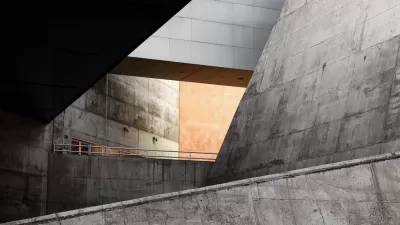The accouterments of modern life are heavily designed, replete with ostensible utility. But here's a radical suggestion: "Perhaps we’re solving the wrong problems — or inventing problems that don’t exist — as justification for our excessive output."
In a compelling editorial, Allison Arieff takes on the pernicious consequences of the "maker"—an invention of the DIY ethos and design savvy of the contemporary zeitgeist. Here's how Arieff describes the maker: "…somewhere in the course of entering the pop culture zeitgeist, the warm and fuzzy self-empowered 'maker' idea got turned into an engine for output and profit. No idea is too superfluous."
The evolution of the maker's design practice, according to Arieff, reflects a blind spot in collective memory: "Not so long ago it felt like we were beginning to recognize that as a society, our patterns of production and consumption were not sustainable…. But that period was short, and the resolve for change it seemed to herald has all but evaporated. While many innovative companies have been focusing on selling experiences rather than manufacturing goods, the drive to produce more has only accelerated."
Although the article focuses more on consumer goods, the argument of the article holds true for all designers, including those who call themselves urban designers. Moreover, the tools of the contemporary maker trade, as described by Arieff, include technologies like 3D printers, which are also changing the game in urban design practices.
FULL STORY: Yes We Can. But Should We?

Maui's Vacation Rental Debate Turns Ugly
Verbal attacks, misinformation campaigns and fistfights plague a high-stakes debate to convert thousands of vacation rentals into long-term housing.

Planetizen Federal Action Tracker
A weekly monitor of how Trump’s orders and actions are impacting planners and planning in America.

San Francisco Suspends Traffic Calming Amidst Record Deaths
Citing “a challenging fiscal landscape,” the city will cease the program on the heels of 42 traffic deaths, including 24 pedestrians.

Defunct Pittsburgh Power Plant to Become Residential Tower
A decommissioned steam heat plant will be redeveloped into almost 100 affordable housing units.

Trump Prompts Restructuring of Transportation Research Board in “Unprecedented Overreach”
The TRB has eliminated more than half of its committees including those focused on climate, equity, and cities.

Amtrak Rolls Out New Orleans to Alabama “Mardi Gras” Train
The new service will operate morning and evening departures between Mobile and New Orleans.
Urban Design for Planners 1: Software Tools
This six-course series explores essential urban design concepts using open source software and equips planners with the tools they need to participate fully in the urban design process.
Planning for Universal Design
Learn the tools for implementing Universal Design in planning regulations.
Heyer Gruel & Associates PA
JM Goldson LLC
Custer County Colorado
City of Camden Redevelopment Agency
City of Astoria
Transportation Research & Education Center (TREC) at Portland State University
Jefferson Parish Government
Camden Redevelopment Agency
City of Claremont





























